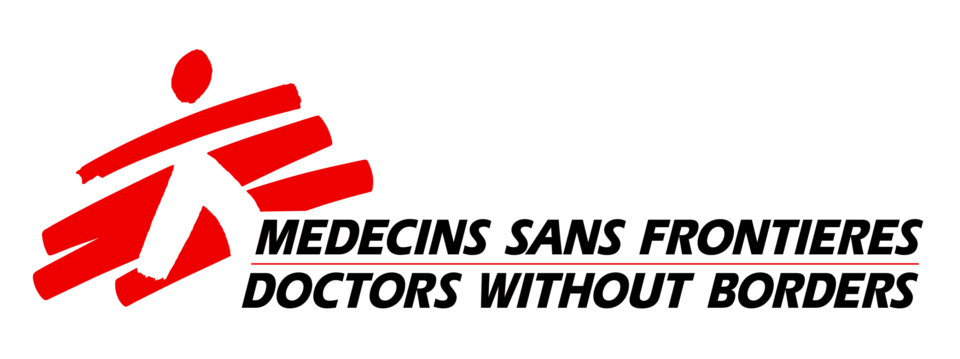“I started vomiting in the wee hours of one Monday morning and never suspected that it was cholera,” says 31-year-old Winfilda Shonhai from Buhera district in Manicaland province. Her family was hit by cholera, and nine family members were admitted to Zangama clinic in Buhera, where cholera has been ravaging the community since the second wave of cholera in August this year.
Despite her having heard of cholera, Winfilda never imagined the disease infecting the whole family.
At first, the family members were reluctant to visit the clinic. Still, when the situation deteriorated, after continuous vomiting and watery diarrhoea, Winfilda’s husband sought help and rushed the family to Zangama clinic, 20 kilometres away from their village. Upon arrival at the clinic, her husband was also admitted as he started showing signs and symptoms of cholera. The whole family was admitted in the Cholera Treatment Centre (CTC) set up by Doctors Without Borders (MSF) at Zangama Clinic, with each member at a different stage of recovery.
“I suspect we got cholera from one of the family members who had visited another village,” says Winfilda. “To get the whole family infected was the worst nightmare .”
“I was the first one to recover and I am happy my family members are recovering. We almost died, the pain was surreal, but the care and support we got from the nurses resuscitated us,” narrates Winfilda.
Winfilda is one of 1,127 confirmed cholera cases in Zimbabwe since February 2023. As of 7 November 2023, there were 6,685 cholera cases recorded in Zimbabwe, 6,406 recoveries, 48 confirmed deaths, and 136 suspected deaths[i] across the country. After the first case was reported in Chegutu town in February 2023, the disease started spreading across the country’s ten provinces, including in Manicaland, where MSF is currently supporting in Buhera. Since the first case was reported, MSF has been supporting the Ministry of Health and Child Care (MoHCC) in combating the cholera outbreak in Chegutu, Beitbridge and Harare with technical support in logistics, provision of treated water and health promotion.
MSF teams are now supporting MoHCC in the fight against cholera in the Buhera district, where the main drivers of the disease have been a lack of safe water and the use of river water, which is potentially contaminated.
“The MSF team in Buhera is providing technical support in proper construction and layout of the cholera treatment centres (CTCs), providing nursing mentorship at different clinics, logistical support, case management, strengthening infection prevention and control measures and risk communication and community engagement and health promotion” explains Kuziwa Kuwenyi, MSF Country Medical Representative.
So far, in Buhera, MSF has set up six cholera treatment centres and provided cholera beds at MoHCC clinics. MSF also donated basic medical supplies like ringer's lactate (used to treat dehydration and restore fluid balance in the body), oral rehydration solution (ORS) and cholera beds to MoHCC in Buhera.
“When we intervened, the case fatality rate currently stood at 4.4%, which was high (according MOH) Buhera daily cholera sitrep of 10 October 2023). There is need for involvement of all stakeholders to reach below 1% case fatality rate in Buhera which is acceptable,” adds Kuwenyi.
The team is also strengthening health promotion activities to increase awareness of the hygiene measures for prevention and control of the disease.
“We are conducting awareness sessions about cholera for all people in the district especially where there are gatherings and also targeting the Apostolic sect members, who do not seek medical attention when infected with cholera”, says Onwell Nyekete, MSF Health Promotion and Risk Communication and Community Officer in Buhera.
“The sessions cover important topics such as what cholera is, how it spreads, what the preventative measures are, and how to detect the symptoms so they can report it. This is crucial information that can help people take action if they suspect they, or someone they know, might have cholera.”
MSF has been working in different parts of the country since 2000, focusing mainly on HIV/ TB and Non-Communicable Diseases (NCDs). The organisation also provided emergency support during 2008, 2018 cholera outbreaks in Buhera and Harare, respectively.
[i] Statistics are according to the Ministry of Health and Child Care sitrep as of 07 November 2023
Distributed by APO Group on behalf of Médecins sans frontières (MSF).
Latest Stories
-
2026 World Cup: We are 100% confident Ghana will qualify – Bonsu Baah
2 minutes -
Springboard Road Show Foundation signs MoU with Youth-Led Organisations to scale Empower360 Impact
2 minutes -
Collateral Registry deploys Artificial Intelligence to strengthen system security and efficiency
5 minutes -
Vincent Joseph Robert Richter
6 minutes -
Prempeh I Int’l Airport runway extension project to be completed in 2025 – Transport Minister assures
8 minutes -
Applauding Ghana’s Independent Power Producers: Unsung heroes of the energy crisis
9 minutes -
Global economy set for weakest run since 2008 – World Bank
16 minutes -
Ayra Starr makes history with first BET Award for Best International Act
2 hours -
ORAL had 33 cases, whistleblowers push count beyond 50 – Deputy AG Srem Sai reveals
2 hours -
Tems excited ahead of historic FIFA Club World Cup show
3 hours -
Some former appointees are providing information against their ex-colleagues – Dr Srem-Sai
3 hours -
NAPO is under investigation for mathematical sets procurement, other issues – Dep AG Srem Sai reveals
3 hours -
Dozens of ex-gov’t officials quietly answering for their tenure without fanfare – Dep AG Srem Sai
4 hours -
South African business confidence edges up in May after big drop in prior month
4 hours -
‘Plea bargaining is our game-changer’ – Dr Srem Sai declares new era in asset recovery
4 hours

